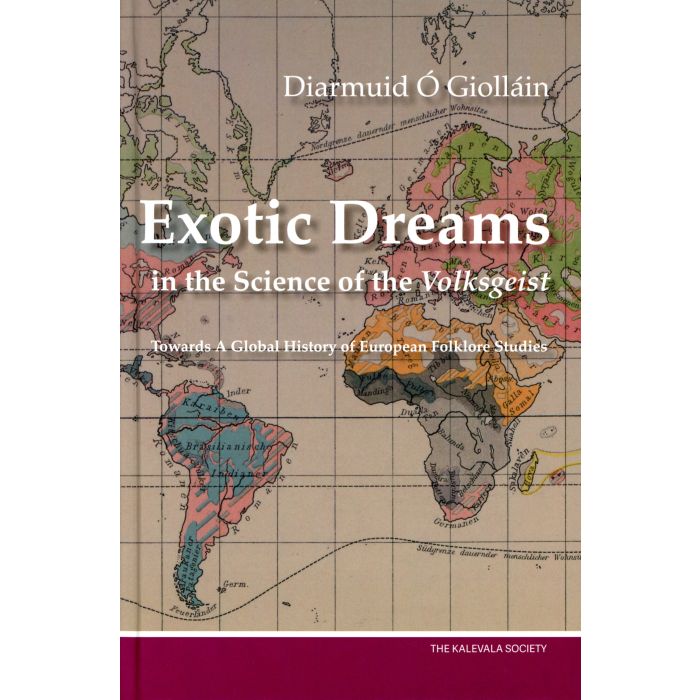Vi använder cookies för att göra din upplevelse bättre. För att följa det nya direktivet om e-integritet, behöver vi be om ditt medgivande att sätta cookies. Läs mer.
Exotic Dreams in the Science of the Volksgeist
42,00 €
I lager
SKU
978-952-9534-04-3
Ó Giolláin, Diarmuid
Exotic Dreams in the Science of the Volksgeist. Towards A Global History of European Folklore Studies
Kalevalaseura-säätiö
Folklore Fellows' Communications 325
Tallinna 2022, 420 pp.
Exotic Dreams in the Science of the Volksgeist. Towards A Global History of European Folklore Studies
Kalevalaseura-säätiö
Folklore Fellows' Communications 325
Tallinna 2022, 420 pp.
The emergence of folklore studies is usually attributed to specifically European circumstances in the late eighteenth and early nineteenth centuries. This book argues that influences from and the consequences of the expansion of powerful states beyond the bounds of Europe informed folkloristics as much as did conditions within.
The Noble Savage and the idea of heroic societies. Herder’s voracious ethnographic reading. The scientific description of peoples over the Eurasian expanse of the Russian Empire. The development of lndo European and Finno-Ugric philology. The world-wide gathering of material culture artifacts.
Such reflection on and observation of non-European peoples and their cultures resounded through Europe and were a key influence on the elaboration of a folkloristic discourse. ’Domestic’ (i.e. European) ethnography was, despite surface differences, part of a general ethnography.
The book's argument is illustrated with chapters on the development of the ethnological sciences in France, Italy and lreland within their different political, social and cultural contexts.
The Noble Savage and the idea of heroic societies. Herder’s voracious ethnographic reading. The scientific description of peoples over the Eurasian expanse of the Russian Empire. The development of lndo European and Finno-Ugric philology. The world-wide gathering of material culture artifacts.
Such reflection on and observation of non-European peoples and their cultures resounded through Europe and were a key influence on the elaboration of a folkloristic discourse. ’Domestic’ (i.e. European) ethnography was, despite surface differences, part of a general ethnography.
The book's argument is illustrated with chapters on the development of the ethnological sciences in France, Italy and lreland within their different political, social and cultural contexts.
| Förläggare | Kalevala Sällskapet |
|---|---|
| ISBN | 978-952-9534-04-3 |
| ISSN | 0014-5815 |
| Publikationsserie | Folklore Fellows' Communications |
| Sarjanro | 325 |
| Tryckt (år) | 2022 |
| Publikationens omslag | Hård pärm |
| Bandtyp | Inbunden |
| Språk | engelska |
| Vetenskapsgrenar | Folklore och folkloristik |


